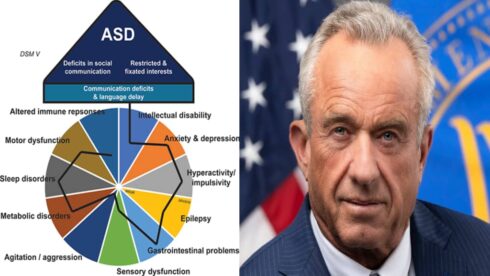Robert F. Kennedy Jr., a prominent environmental attorney and health advocate, has ignited fierce debate with his proposal to establish a national database of Americans diagnosed with autism. His plan would integrate traditional medical records with biometric data collected from smartwatches and wearable fitness devices to develop a comprehensive profile of autism spectrum disorder (ASD) cases across the United States.
Kennedy Jr asserts that this initiative is designed to improve the precision of autism research by uncovering trends in physiological and environmental factors often overlooked by conventional studies. He described the database as a “scientific reckoning” meant to close knowledge gaps, not a tool for control or surveillance.
Privacy Advocates Alarmed by Scope of Proposed Data Collection
Robert F. Kennedy Jr. emphasized that the proposed data collection would provide “real-time clarity” on autism’s root causes, stating that anonymized biometric and health data can illuminate hidden variables in developmental disorders. His proposal includes sourcing patient data from electronic health records, insurance claims, hospital systems, and wearable technology platforms.
However, privacy watchdogs have raised the alarm. The Electronic Frontier Foundation and other civil liberties organizations argue that the proposal risks violating patient confidentiality and could set a precedent for intrusive state-led health surveillance. Critics insist that no amount of anonymization can guarantee true privacy in a digital ecosystem where data breaches and re-identification risks remain high.
Autism Community Divided Over Intent and Impact

Robert F. Kennedy Jr. presented the initiative as a gift to families seeking answers. He said the autism community has long suffered from scientific neglect and fragmented data, and that this project would empower caregivers, educators, and clinicians with actionable insights. He also pledged to work with ethical review boards and neurodivergent stakeholders during the database’s development.
Yet, the response from autism advocacy groups has been far from unified. While some organizations cautiously support the idea of a centralized research database, others have condemned the plan as a potential vector for discrimination, data exploitation, and mischaracterization of neurodiverse individuals. Many fear that collecting such granular data could lead to harmful profiling rather than inclusive care.
Medical Ethics Experts Call for Independent Oversight
Kennedy Jr maintains that the existing scientific institutions have failed to respond adequately to the autism surge and insists his proposed database would fill critical gaps in longitudinal data. By combining medical histories with physiological metrics, he believes researchers can more effectively detect early indicators and causal patterns.
However, bioethicists have called for the creation of an independent oversight body before any data collection begins. They argue that informed consent, data ownership, and community engagement must be guaranteed at every stage of the project. Without stringent legal safeguards and public transparency, they warn, such an initiative could quickly veer into ethically hazardous territory.
Technologists Highlight Dangers of Smartwatch Data Misuse
Kennedy Jr claims that smartwatch-generated data—like heart rate variability, sleep disruption, and cortisol levels—holds untapped potential in identifying early signs of neurological divergence. He refers to wearable devices as “neurological sensors” capable of detecting invisible health shifts in daily life.
Cybersecurity analysts, however, point to major vulnerabilities in wearable technology ecosystems. Smartwatch data is often stored in cloud environments managed by third-party vendors with inconsistent privacy practices. Experts fear that funneling this data into a centralized autism registry—no matter how well-intentioned—creates a prime target for cybercriminals, corporate misuse, and state-level espionage.
Scientific Community Demands Clearer Methodology
Kennedy Jr argues that his database plan will finally allow scientists to evaluate correlations between health data and autism development across populations. He envisions the database enabling researchers to trace environmental exposures, sleep disruptions, and metabolic markers with unprecedented clarity, accelerating breakthroughs in diagnosis and treatment.
But researchers remain divided on the project’s feasibility. Many demand a clearer explanation of data parameters, sampling criteria, and analytic models. Without transparency around methodology, they warn, the project could amplify pseudoscience rather than inform genuine discovery. Some scientists fear the initiative may lean more toward ideological agendas than rigorous scientific validation.














